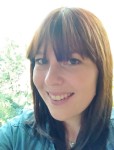Assessing a new clinical resource for Anorexia Nervosa: Stories of recovery
Assessing a new clinical resource for Anorexia Nervosa: Stories of recovery
Do you find stories about recovery from Anorexia Nervosa helpful? Certainly, when I was recovering from the illness, I found several memoirs very

If you have Anorexia Nervosa, PhD candidate at University of Sydney, Lisa Dawson, invites you to participate in a study assessing the benefits of recovery stories.
inspiring and they spurred me on the way to freedom. The most exciting revelations that gave me hope and to which I clung were that, hey, I was not alone (there were others who had thoughts like me), I was not ‘mad’ (I had an illness, that’s all) and recovery was indeed possible (this was what I needed to hear – from someone who had been there and understood). Wow. So, I am very grateful to these survivors who have recovered and proceeded to share their stories to help others. My recovery is partly due to them.
But are all narratives on Anorexia Nervosa helpful?
Today, books and memoirs about recovery from Anorexia Nervosa and stories of recovery are often featured on eating disorder blogs.
Until now, the benefit of such stories for those living with eating disorders has not been examined. Here is your chance to have a say in what you find helpful (or not).
Researchers at the University of Sydney have developed a clinical resource for people with Anorexia Nervosa and Anorexia-type eating disorders. This resource is a compilation of true stories of women who have successfully and fully recovered from chronic anorexia nervosa.
University of Sydney PhD candidate, Lisa Dawson, describes how you can contribute:
We are interested in whether reading such stories is helpful for current sufferers.
Participation in this study firstly involves completing a brief questionnaire online to assess your eligibility for the study. If eligible, the study involves completing questionnaires online on two or three occasions, two weeks apart. It also involves reading five short stories about recovery from anorexia nervosa. We are very interested in receiving your feedback about the stories.
People 18 years or over who have anorexia nervosa or an eating disorder similar to anorexia nervosa (e.g., a BMI of less than 20) are invited to participate. If you’re not sure if you’re eligible please get in touch and we can let you know. We are hoping to have as many people as possible take part in this study.
Importantly:
– the study is conducted online and therefore anyone from around the world can participate.
– the study has been approved by the University of Sydney Ethics Committee and all aspects of the study, including results, are strictly confidential.
Lisa describes the motivation behind her research
“I work as a psychologist with people with Anorexia Nervosa and know how this illness can affect people’s lives. Understanding this has motivated me to pursue research in this area.
“As part of my PhD I had the honor and privilege of interviewing and then writing the stories of women who had successfully recovered from long-standing Anorexia Nervosa. Their stories were inspiring and detailed the hard work, determination, and courage it takes to beat this devastating illness. While these stories outlined the difficult journey of recovery they also provided hope.
“We want to share these stories with sufferers. From a research perspective, we also want to examine if reading such stories is helpful for those with Anorexia.”
To find out more about this exciting research, and learn how you can participate, contact Lisa Dawson at lisa.dawson@sydney.edu.au





